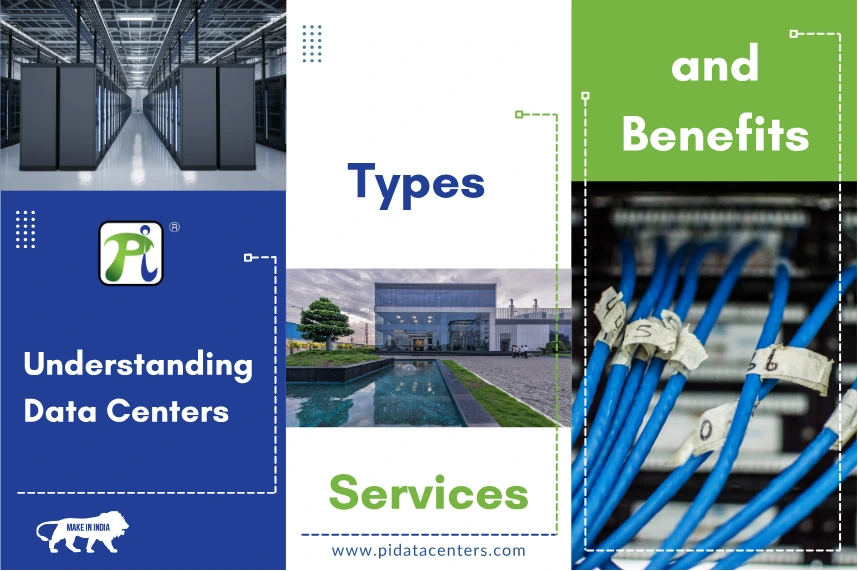We Will Get Back To You As Soon As Possible


A data center is a state-of-the-art facility that serves as the backbone for all IT operations. It is designed to efficiently house and manage the entire infrastructure required for running applications, delivering services, and storing valuable data. Data center services cover a wide range of tasks and resources that are crucial for the smooth functioning and improvement of a data center. These include processing, storage, networking, and data distribution, among others. Various types of data centers exist, including enterprise data centers, cloud data centers, and edge data centers, each catering to specific needs and demands.
When it comes to data centers, their classification is determined by factors such as size, dependability, and redundancy. These factors are determined by the specific IT requirements of the enterprises that manage them. The Uptime Institute has developed a tier system to assess the availability of data centers, which spans from Tier 1 to Tier 4. Take, for instance, a Tier 4 data center that boasts an impressive 99.995% uptime annually with less than an hour of downtime per year.
Data centers have evolved from traditional on-premises facilities to cloud architecture, where physical hardware resources are virtualized. They can also be remotely located or part of a network of facilities owned by cloud service providers. Edge data centers, located closer to cloud customers, are used for real-time, data-intensive workloads to minimize latency and improve overall application performance and customer experience. These edge data centers are strategically placed in various geographical locations to ensure fast and reliable access to data and applications. They are equipped with advanced infrastructure, including high-speed networks and powerful servers, to handle the increasing demands of modern applications.
Data center services include technical support, which provides assistance in solving problems related to technology products. Additionally, Data Center as a Service (DCaaS) is a hosting service that provides physical data center infrastructure and facilities to clients, allowing remote access to storage, servers, and networking resources through a Wide-Area Network (WAN). These services are crucial for businesses that require reliable and secure data storage and processing capabilities without the need for on-premises infrastructure. DCaaS offers scalability and flexibility, allowing businesses to easily scale their resources up or down based on their needs.
Data centers play a crucial role in the world of computing, serving as the foundation for storing information and facilitating resource-intensive data tasks such as analysis and modeling. They have a vital role in the age of cloud-based, application-driven computing, offering the necessary storage and computing capabilities for apps, information, and content. Investing in data center architecture can greatly enhance an organization's ability to support IT and business processes.
These are built and owned by organizations for their internal end users. They support the IT operations and critical applications of a single organization and can be located on the corporate campus.
Managed by third parties, these data centers provide all aspects of data storage and computing services. Companies lease, instead of buying, the infrastructure and services.
In a colocation center, also known as a "carrier hotel," organizations can rent equipment, space, and bandwidth from the data center.
Cloud data centers are built, owned, and operated by cloud service providers. They offer services such as Infrastructure as a Service (IaaS), Platform as a Service (PaaS), and Software as a Service (SaaS).
These different types of data center services cater to various needs and requirements, providing organizations with options for housing and managing their IT infrastructure and applications.
Colocation data centers offer significant cost savings for enterprises by eliminating the need for in-house IT infrastructure and staff. Companies can save on upfront costs by renting space, power, and bandwidth from a third-party provider instead of building and maintaining their own data center.

Colocation data centers provide robust power and cooling systems, along with reliable communication systems, to ensure uninterrupted connectivity. By implementing these measures, the chances of experiencing any service interruptions that could potentially impact your business operations are significantly minimized.
Colocation data centers offer valuable solutions to mitigate the risk of data loss or downtime. They provide disaster recovery services and backup power systems, ensuring the safety and continuity of your data.
Colocation data centers boast fully redundant network connections, guaranteeing uninterrupted operation of customers' business-critical applications.
Colocation data centers provide businesses with the flexibility to easily scale their IT infrastructure up or down, enabling them to adapt to changing needs effortlessly.
Colocation data centers offer unparalleled security measures, including state-of-the-art firewalls that effectively detect and prevent unauthorized access to systems.
While there are some initial costs associated with colocation, such as setup fees and equipment costs, the benefits of using a colocation data center can outweigh these costs in the long run.
Since cloud data centers use the hardware from the cloud provider’s data center, they don’t need to maintain the hardware at all. They don’t need to pay for the physical set-up of the data center, plus the hardware, upgrades, staff, power, facility management, and maintenance costs.
Cloud data centers provide businesses with the ability to easily scale their IT infrastructure to adapt to evolving requirements. With this approach, businesses have the flexibility to effortlessly add or remove resources as required without being constrained by the physical limitations of their own data center.
Cloud data centers offer robust security measures, including state-of-the-art firewalls that effectively detect and prevent unauthorized access to systems. Cloud providers have dedicated security teams that constantly monitor the infrastructure to ensure data security at all times.
Cloud data centers provide robust power and cooling systems, along with reliable communication infrastructure, to ensure uninterrupted connectivity. By implementing this strategy, the chances of experiencing any service interruptions that could potentially impact your business operations are significantly minimized.
Cloud data centers ensure continuous access to data with highly effective backup systems. This suggests that businesses possess the expertise to quickly recover from different crises, whether they are caused by natural disasters or cyberattacks, without incurring any loss of data.
In conclusion, data centers are essential in the world of computing, acting as the backbone for storing data and enabling resource-intensive data operations like analysis and modeling. In the era of cloud-based, application-driven computing, their role is crucial, as they provide the essential storage and computing capabilities for apps, information, and content. Investing in data center architecture can significantly improve an organization's capacity to support IT and business processes.
Questions? We're here to help.
©2024 Pi DATACENTERS® Pvt. Ltd. All rights reserved
